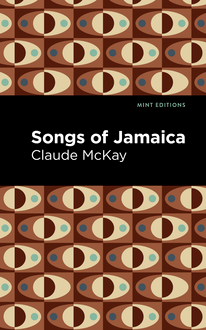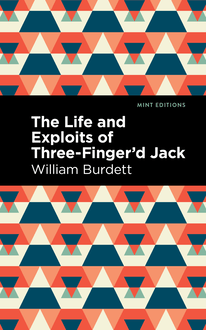-
 Univers
Univers
-
 Ebooks
Ebooks
-
 Livres audio
Livres audio
-
 Presse
Presse
-
 Podcasts
Podcasts
-
 BD
BD
-
 Documents
Documents
-
- Cours
- Révisions
- Ressources pédagogiques
- Sciences de l’éducation
- Manuels scolaires
- Langues
- Travaux de classe
- Annales de BEP
- Etudes supérieures
- Maternelle et primaire
- Fiches de lecture
- Orientation scolaire
- Méthodologie
- Corrigés de devoir
- Annales d’examens et concours
- Annales du bac
- Annales du brevet
- Rapports de stage
La lecture à portée de main
Vous pourrez modifier la taille du texte de cet ouvrage
Découvre YouScribe en t'inscrivant gratuitement
Je m'inscrisDécouvre YouScribe en t'inscrivant gratuitement
Je m'inscrisEn savoir plus
Vous pourrez modifier la taille du texte de cet ouvrage
En savoir plus

Description
Songs of Jamaica (1912) is a poetry collection by Claude McKay. Published before the poet left Jamaica for the United States, Songs of Jamaica is a pioneering collection of verse written in Jamaican Patois, the first of its kind. As a committed leftist, McKay was a keen observer of the Black experience in the Caribbean, the American South, and later in New York, where he gained a reputation during the Harlem Renaissance for celebrating the resilience and cultural achievement of the African American community while lamenting the poverty and violence they faced every day. “Quashie to Buccra,” the opening poem, frames this schism in terms of labor, as one class labors to fulfill the desires of another: “You tas’e petater an’ you say it sweet, / But you no know how hard we wuk fe it; / You want a basketful fe quattiewut, / ‘Cause you no know how ‘tiff de bush fe cut.” Addressing himself to a white audience, he exposes the schism inherent to colonial society between white and black, rich and poor. Advising his white reader to question their privileged consumption, dependent as it is on the subjugation of Jamaica’s black community, McKay warns that “hardship always melt away / Wheneber it comes roun’ to reapin’ day.” This revolutionary sentiment carries throughout Songs of Jamaica, finding an echo in the brilliant poem “Whe’ fe do?” Addressed to his own people, McKay offers hope for a brighter future to come: “We needn’ fold we han’ an’ cry, / Nor vex we heart wid groan and sigh; / De best we can do is fe try / To fight de despair drawin’ night: / Den we might conquer by an’ by— / Dat we might do.” With a beautifully designed cover and professionally typeset manuscript, this edition of Claude McKay’s Songs of Jamaica is a classic of Jamaican literature reimagined for modern readers.
Sujets
Informations
| Publié par | Mint Editions |
| Date de parution | 28 mai 2021 |
| Nombre de lectures | 4 |
| EAN13 | 9781513224053 |
| Langue | English |
Informations légales : prix de location à la page 0,0400€. Cette information est donnée uniquement à titre indicatif conformément à la législation en vigueur.
Extrait
Songs of Jamaica
Claude McKay
Songs of Jamaica was first published in 1912.
This edition published by Mint Editions 2021.
ISBN 9781513299358 | E-ISBN 9781513224053
Published by Mint Editions®
minteditionbooks.com
Publishing Director: Jennifer Newens
Design & Production: Rachel Lopez Metzger
Project Manager: Micaela Clark
Typesetting: Westchester Publishing Services
To His Excellency
Sir Sydney Olivier, K.C.M.G,
Governor of Jamaica
Who
By His Sympathy With the Black Race
Has Won
The Love and Admiration of All Jamaicans,
This Volume is
By Permission
Respectfully Dedicated
C ONTENTS P REFACE TO “S ONGS OF J AMAICA ” Q UASHIE TO B UCCRA M E B ANNABEES L UB O’ M INE T AKEN A BACK L ITTLE J IM J IM AT S IXTEEN W HE ’ F E D O ? K ING B ANANA P LEADING T HE B ITER B IT O UT OF D EBT T HE H ERMIT F ETCHIN ’ W ATER S CHOOL -T EACHER N ELL ’ S L UB -L ETTER N ELLIE W HITE R ETRIBUTION T O E.M.E. H ARD T IMES C UDJOE F RESH F ROM D E L ECTURE D E D AYS D AT A RE G ONE R EVEILLE S OUN ’ IN ’ O LD E NGLAND D AT D IRTY R UM H EART -S TIRRINGS D E D OG -R OSE A M IDNIGHT W OMAN TO THE B OBBY M OTHER D EAR K ITE -F LYING I ONE K ILLIN ’ N ANNY M Y N ATIVE L AND , M Y H OME T WO -A N ’-S IX C OMPENSATION H EARTLESS R HODA A D REAM R ISE AND F ALL B ENEATH THE V AMPY S HADE T O I NSPECTOR W.E. C LARK T O C LARENDON H ILLS AND H.A.H. W HEN Y OU W ANT A B ELLYFUL S TROKES OF THE T AMARIND S WITCH M Y P RETTY D AN R IBBER C OME -D O ’ N A C OUNTRY G IRL M Y S OLDIER -L AD M Y M OUNTAIN H OME T O B ENNIE H OPPING OFF THE T RAM T O A C OMRADE J UBBA A PPENDIX OF T UNES
P REFACE TO “S ONGS OF J AMAICA ”
W hat Italian is to Latin, that in regard to English is the negro variant thereof. It shortens, softens, rejects the harder sounds alike of consonants and vowels; I might almost say, refines. In its soft tones we have an expression of the languorous sweetness of the South: it is a feminine version of masculine English; pre-eminently a language of love, as all will feel who, setting prejudice aside, will allow the charmingly na ï ve love-songs of this volume to make their due impression upon them. But this can only happen when the verses are read aloud, and those unacquainted with the Jamaican tongue may therefore welcome a few hints as to pronunciation.
As a broad general direction, let it be observed that the vowels have rather the continental than the English sounds, while in the matter of the consonants the variation from English is of the nature of a pretty lisp. The exact values of the vowels cannot, of course, be described, but they approximate on the whole more to those of Italy and France than to those of England. One sound, that of aw , is entirely rejected, and ah is substituted for it. Thus bawl , law , call , daughter , etc., become bahl , lah , cahl , dahter , etc.
In the word whe’ , which sometimes means where and sometimes which, the e has the same sound as in the word met . Deh is similarly pronounced, and the e is quite a short one, the h being added merely to distinguish deh from de (the). This short e often takes the place of the close English a , as in tek (take), mek (make).
My is almost invariably pronounced with a short y , and, to remind the reader of this, it is constantly spelt me . Fe —generally meaning to , but sometimes for— matches this short my exactly. In caan’ (can’t) the a is doubled in order to ensure the pronunciation cahn .
It is difficult to convey the exact value of do’n (down), groun’ (ground). There is a faint trace of ng at the end of these words, and they rhyme to tongue pronounced very shortly and with a dumber vowel sound.
Vowels are sometimes changed out of mere caprice, as it seems. Thus we have ef for if , trimble for tremble , anedder for anudder (another), stimulent for stimulant , a— pronounced short—for I , sperit for spirit .
In ya , originally meaning d’you hear— but now thrown in just to fill up, like the don’t you know of certain talkers—the a is a short ah .
We come now to the consonants. Bearing in mind what was said above of the pretty lisp, let the d so often—generally, we may say—substituted for th , be of the very softest, as it were a th turning towards d , or to put it in another way, a lazily pronounced th. The negro has no difficulty whatever in pronouncing it clearly: it is merely that he does not, as a rule, take the trouble to do so. In these poems the , they , there , with, etc., are not always written de , dey , dere , wid , etc.; and the reader is at liberty to turn any soft th into d , and any d into soft th. And here let me remark, in passing, that in one breath the black man will pronounce a word in his own way, and in the next will articulate it as purely as the most refined Englishman. Where the substitution of d makes the word unrecognisable, as in moder (mother), oders (others), the spelling mudder , udders is resorted to; and for fear of confusion with well-known words, though, those are always written thus, although generally pronounced, dough , dose .
As d supplants the soft th , so does a simple t supplant the hard one; as in t’ing , not’ing (or nuttin’ ,—for the g in words of two or more syllables is very commonly left out), t’ink , tick , t’rough , met’od , wutless (worthless).
V tends to pass into b , as in lub (love), hab , lib , ebery , neber , cultibation . Vex , though so written for the most part, is pronounced either with a decided b or with some compromise between that and v .
Of elisions, the commonest is that of the initial s when followed by another consonant. Thus start, spread, stop, scrape , spoil , sting , skin , etc., become ’tart, ’pread, ’top, ’crape, ’poil, ‘’ting, ’kin , etc.
Final d’s are often dropped, as in lan’, t’ousan’, please’ (pleased) and other past participles, min’ , chil’— in these let care be taken to keep the long sound of the i’ — wul’ (world), wud (word), en’ .
Final t’s also; as in breas’ , cas’, ’gains’ (against), i’ (it), las’ , wha’, wus’ (worst), tas’e (taste). Present participles, passin’, brukin’ (breaking), outpourin’ , etc., lose their g’ s; and final k’s sometimes disappear, as in tas’ . R’s , too, as in you’ for your , mo’ for more , befo ’ or simply ’fo’ for before : and they are even thrown out from the middle of words, as in wuk (work), tu’n (turn), wud (word). Will occasionally loses its l’s and becomes wi’ .
Initial vowels have also a habit of vanishing: as in ’bout (about), ’long (along), ’way (away), nuff (enough), ’pon (upon); but the elision of these and of longer first syllables is sometimes made up by tacking something to the end, and for about, without, because we get ’bouten, ’douten, ’causen .
On the construction of the language it is unnecessary to dwell, for it is fully explained in the notes, and the reader will soon master the mysteries of be’n with its various significations, is, was, were, have been, had been, did (as sign of the past tense); of deh , which may be either an adverb (there) or an auxiliary verb as in me deh beg (I am begging); of dem tacked close to its noun, to show it is plural; of tenses apparently past which are present, and apparently present which are past: for the unravelling of all which the needful help has, it is hoped, been supplied by the notes aforesaid.
Readers of this volume will be interested to know that they here have the thoughts and feelings of a Jamaican peasant of pure black blood. The young poet, aged twenty-two, spent his early years in the depths of the country, and though he has now moved to the more populous neighbourhood of Kingston, his heart remains in his Clarendon hills. He began life as a wheelwright, but the trade was not to his mind, and he left it and enlisted in the Constabulary.
W ALTER J EKYLL
Q UASHIE TO B UCCRA 1
You tas’e 2 petater 3 an’ you say it sweet,
But you no 4 know how hard we wuk 5 fe it;
You want a basketful fe quattiewut 6 ,
’Cause you no know how ’tiff de bush fe cut 7 .
De cowitch 8 under which we hab fe ’toop,
De shamar 9 lyin’ t’ick like pumpkin soup,
Is killin’ somet’ing 10 for a naygur man;
Much less 11 de cutlass workin’ in we han’.
De sun hot like when fire ketch a 12 town;
Shade-tree look temptin’, yet we caan’ lie down,
Aldough we wouldn’ eben ef we could,
Causen we job must finish soon an’ good. 13
De bush cut done, de bank dem we deh dig 14 ,
But dem caan’ ’tan’ sake o’ we naybor pig;
For so we moul’ it up he root it do’n 15 ,
An’ we caan’ ’peak sake o’ we naybor tongue 16 .
Aldough de vine is little, it can bear;
It wantin’ not’in’ but a little care:
You see petater tear up groun’, you run, 17
You laughin’, sir, you must be t’ink a fun. 18
De fie!’ pretty? It couldn’t less ’an dat 19 ,
We wuk de bes’, 20 an’ den de lan’ is fat;
We dig de row dem eben in a line,
An’ keep it clean—den so it mus ’ look fine.
You tas’e petater an’ you say it sweet,
But you no know how hard we wuk fe it;
Yet still de hardship always melt away
Wheneber it come roun’ to reapin’ day.
1 . The buccra (white man) looking over the hedge at the Black man’s field, is addressed by the latter as follows.
2 . Taste.
3 . Sweet potato ( Ipomaa Batatas .)
4 . Don’t.
5 . Work.
6 . Quattiworth: quattie, a quarter of sixpence.
7 . Because you don’t know how stuff the bush is to cut, i.e. , what hard work it is to fell the trees and clear the land.
8 . Mucuna pruriens .
9 . Shamebush, the prickly sensitive plant ( Mimosa Pudica .)
10 . Terrible stuff.
11 . More.
12 . In.
13 . Because our job must be quickly and thoroughly done.
14 . The clearing of the land done, we dig the banks—kind of terraces on the steep hill side—but owing to our neighbour’s pig they cannot stand. “Bank dem” = banks. This intrsutive “dem” must be tacked closely to the preceding word. It occurs again below—“row dem.”
15 . For no ssoner do we mould it up, than he (the pig) roots it (the bank) down. “Down” is pronounced very short, and is a good rhym
-
 Univers
Univers
-
 Ebooks
Ebooks
-
 Livres audio
Livres audio
-
 Presse
Presse
-
 Podcasts
Podcasts
-
 BD
BD
-
 Documents
Documents
-
Jeunesse
-
Littérature
-
Ressources professionnelles
-
Santé et bien-être
-
Savoirs
-
Education
-
Loisirs et hobbies
-
Art, musique et cinéma
-
Actualité et débat de société
-
Jeunesse
-
Littérature
-
Ressources professionnelles
-
Santé et bien-être
-
Savoirs
-
Education
-
Loisirs et hobbies
-
Art, musique et cinéma
-
Actualité et débat de société
-
Actualités
-
Lifestyle
-
Presse jeunesse
-
Presse professionnelle
-
Pratique
-
Presse sportive
-
Presse internationale
-
Culture & Médias
-
Action et Aventures
-
Science-fiction et Fantasy
-
Société
-
Jeunesse
-
Littérature
-
Ressources professionnelles
-
Santé et bien-être
-
Savoirs
-
Education
-
Loisirs et hobbies
-
Art, musique et cinéma
-
Actualité et débat de société
- Cours
- Révisions
- Ressources pédagogiques
- Sciences de l’éducation
- Manuels scolaires
- Langues
- Travaux de classe
- Annales de BEP
- Etudes supérieures
- Maternelle et primaire
- Fiches de lecture
- Orientation scolaire
- Méthodologie
- Corrigés de devoir
- Annales d’examens et concours
- Annales du bac
- Annales du brevet
- Rapports de stage















